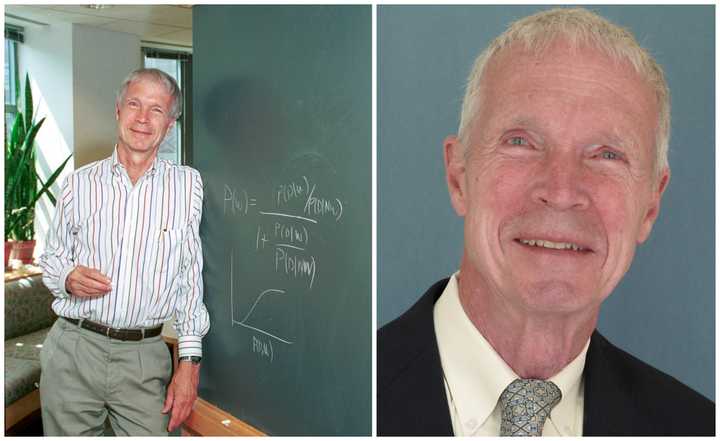John Hopfield was awarded the Nobel Prize in physics on Tuesday, Oct. 8, the Royal Swedish Academy of Sciences said. The professor emeritus of molecular biology shared the prize with University of Toronto professor Geoffrey Hinton.
Hopfield and Hinton were honored for their AI-based research in "foundational discoveries and inventions" that train computers to learn similarly to how the human brain operates.
"In an artificial neural network, the brain’s neurons are represented by nodes that have different values," the academy said. "These nodes influence each other through connections that can be likened to synapses and which can be made stronger or weaker. The network is trained, for example by developing stronger connections between nodes with simultaneously high values."
Hopfield is the inventor of a network that uses an intricate method of saving and replicating patterns. Hinton used the "Hopfield network" for the Boltzmann machine, which can classify images or create new examples of a pattern that trained the machine.
The combination of different disciplines of science has helped fuel the rise in generative AI.
"The laureates’ work has already been of the greatest benefit," said Nobel physics committee chair Ellen Moons. "In physics, we use artificial neural networks in a vast range of areas, such as developing new materials with specific properties."
Princeton said Hopfield learned he was awarded the prize at a cottage in England. He and his wife returned from getting flu shots and coffee to many emails he called "astounding" and "heartwarming."
Hopfield said his theoretical research can help improve existing technologies.
"The science which advances technology is the science that gets done for curiosity’s sake much earlier," said Hopfield.
Princeton president Christopher Eisgruber said he hopes Hopfield's research will benefit society for generations.
"His Nobel Prize-winning work shows how extraordinary discoveries are possible when brilliant thinkers are given the freedom to explore across traditional disciplinary boundaries," Eisgruber said. "Professor Hopfield beautifully exemplifies Princeton's commitment to curiosity-driven research and his work demonstrates the power of profound ideas to address some of the world's most pressing challenges."
Hopfield, 91, first taught physics at Princeton between 1964 and 1980, and has remained there since returning in 1997, according to the American Institute of Physics.
"John combined physics, biology, and neuroscience approaches to probe the brain, developing neural networks to explain how the brain recalls memories," said Bonnie Bassler, Princeton's molecular biology department chair. "Those discoveries led to the creation of artificial neural networks that are now routinely used by machines like smartphones and self-driving cars.
"The Nobel recognition is truly deserved as John’s contributions have fundamentally changed the world."
Princeton researchers, faculty, and alumni have been awarded 53 Nobel Prizes, 23 of which have been in physics.
"Nobel prizes are so special for so many reasons where the world stops for a moment and recognizes the special importance of fundamental research and scholarship," said Eisgruber. "I think here at Princeton University, we have a tradition of celebrating these prizes the way that some universities celebrate national athletic championships and things like that."
Hopfield and Hinton will share a prize of 11 million Swedish kroner, which is about $1 million.
Click here to follow Daily Voice Cranbury and receive free news updates.

